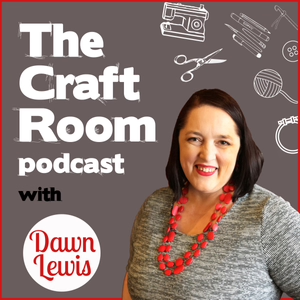
Episode 313: Preventing Secondary Reactions: Preparing Your Horse for Success
11/13/24 • 29 min
In this episode, Stacy Westfall opens with an update on her current horses, and then introduces the main topic of how to train for something ‘before you need it.’ Stacy discusses her approach to training Ember, a highly athletic and sensitive young horse she describes as "a lot of horse." Using the analogy of a sports car versus a luxury car, she explains how different horses require different handling while still aiming for a balanced "middle" response. Stacy emphasizes the importance of not denying a horse's natural characteristics but rather working with them constructively. She focuses particularly on the challenge of transitioning from loose rein to contact, especially during spook situations. To prevent secondary spooking (when a horse reacts to the rider's response to the initial spook), Stacy practices hundreds of take-hold-and-release exercises during each ride. The episode concludes with encouragement for riders who discover training gaps after problems arise, comparing preparation to fire drills - ideally practiced before needed, but still valuable to learn from past experiences.
In this episode, Stacy Westfall opens with an update on her current horses, and then introduces the main topic of how to train for something ‘before you need it.’ Stacy discusses her approach to training Ember, a highly athletic and sensitive young horse she describes as "a lot of horse." Using the analogy of a sports car versus a luxury car, she explains how different horses require different handling while still aiming for a balanced "middle" response. Stacy emphasizes the importance of not denying a horse's natural characteristics but rather working with them constructively. She focuses particularly on the challenge of transitioning from loose rein to contact, especially during spook situations. To prevent secondary spooking (when a horse reacts to the rider's response to the initial spook), Stacy practices hundreds of take-hold-and-release exercises during each ride. The episode concludes with encouragement for riders who discover training gaps after problems arise, comparing preparation to fire drills - ideally practiced before needed, but still valuable to learn from past experiences.
Previous Episode

Episode 312: Is Your Horse Seeing Contradictions? Helping Your Horse Understand
In this episode, Stacy explores the concept of recognizing and embracing contradictions in horse training, sharing insights from a recent experience with her horse, Luna. Luna has started anticipating spins during trot circles, which could be viewed as a problem, but Stacy sees it as a potential training advantage. She explains how anticipation can create a draw toward certain movements, making them feel more like the horse’s choice rather than a command. Stacy considers two solutions: changing the pre-spin routine or separating trot circles from the spin entirely. However, she chooses a third approach—embracing Luna’s anticipation as a sign of her eagerness to engage. By doing so, Stacy encourages a cooperative training environment where the horse’s motivation becomes a powerful tool. She also highlights how understanding and embracing contradictions is key in guiding horses through the learning process, especially in early stages of training.
Next Episode

Episode 314: New is Always New: Why Experience Doesn't Eliminate Uncertainty
Stacy Westfall explores a common misconception in horse training: that professionals don't experience uncertainty or caution when facing new situations. Through parallel stories of her hesitation at a coffee shop and a horse encountering a trailer ramp, she reveals that professionals absolutely feel cautious, careful, and mindful – they just accept these feelings as a natural part of the process. What sets professionals apart isn't an absence of uncertainty, but rather their approach: they do everything possible to prepare, then rely on "educated guesses" to bridge the remaining gap. Stacy illustrates how everyone – even experts – faces resistance to new situations. The key difference is that professionals understand that "new is always new" and embrace the inherent uncertainty rather than fighting it. They prepare thoroughly, then lean into their experience to make informed decisions in unfamiliar moments. She encourages listeners to observe their own responses to new situations in daily life, as these patterns often mirror how they interact with horses.
If you like this episode you’ll love
Episode Comments
Generate a badge
Get a badge for your website that links back to this episode
<a href="https://goodpods.com/podcasts/train-your-own-horse-with-stacy-westfall-440555/episode-313-preventing-secondary-reactions-preparing-your-horse-for-su-78287318"> <img src="https://storage.googleapis.com/goodpods-images-bucket/badges/generic-badge-1.svg" alt="listen to episode 313: preventing secondary reactions: preparing your horse for success on goodpods" style="width: 225px" /> </a>
Copy




